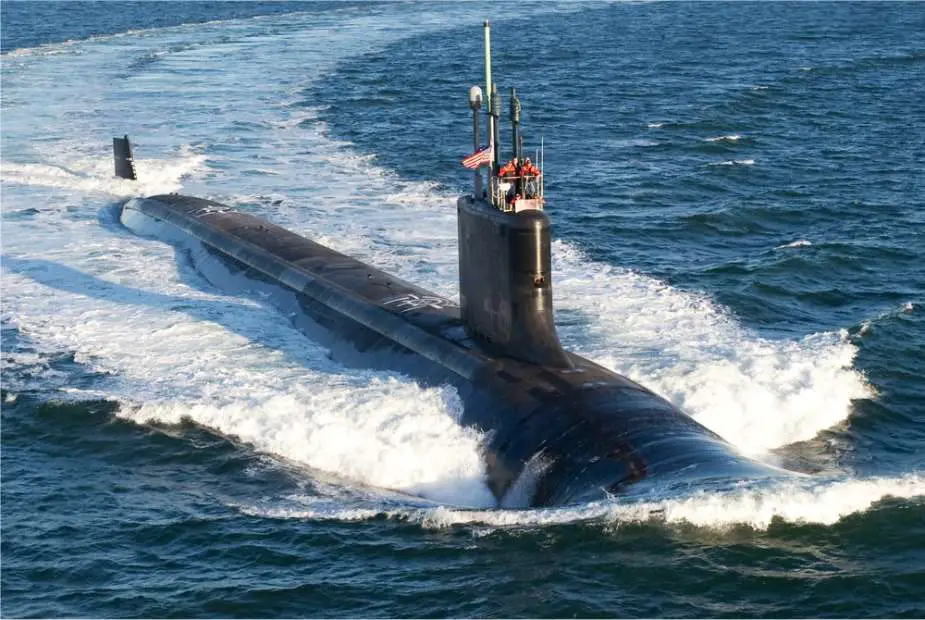On December 13, 2023, the U.S. Senate took a significant step by adopting the National Defense Authorization Act (NDAA) for the fiscal year 2024. This act, with a budget of $874.2 billion, marks a key milestone in the implementation of the AUKUS agreement between the United States, the United Kingdom, and Australia. The centerpiece of this legislation is the authorization of the transfer of three Virginia-class attack submarines to Australia, planned for the 2030s.
Follow Navy Recognition on Google News at this link
 The Virginia-class attack submarine Pre-Commissioning Unit Mississippi (SSN 782) conducts alpha trials in the Atlantic Ocean. (Picture source: US DoD)
The Virginia-class attack submarine Pre-Commissioning Unit Mississippi (SSN 782) conducts alpha trials in the Atlantic Ocean. (Picture source: US DoD)
The U.S. Senate has passed the National Defense Authorization Act (NDAA) for the fiscal year 2024. A key provision of the NDAA is the authorization to transfer three Virginia-class submarines to Australia, a move planned for the 2030s.
Under the AUKUS agreement, the U.S. Navy will sell to Australia Virginia-class Block IV submarines in 2032 and 2035, and a Block VII submarine in 2038. The Block IV submarines, equipped with advanced sonar systems and Tomahawk cruise missiles, have significant operational experience. The Block VII submarine, featuring enhanced technologies, will bring extended strategic deterrence capabilities to the Australian navy.
The AUKUS agreement, aimed at strengthening defense and security cooperation in the Indo-Pacific region, is here translated into a tangible commitment by the United States. The transfer of these submarines, considered among the most advanced in the world, represents a leap in Australian defense capabilities, in a context of increasing geopolitical tensions in the region.
Besides the transfer of equipment, the NDAA also includes measures to consolidate the U.S. submarine industrial base, with a financial contribution of $3 billion from Australia. This measure was designed to alleviate concerns about the U.S. submarine production capacity, notably raised by Senator Roger Wicker of Mississippi.
The NDAA also foresees enhanced collaboration in defense technology and production, by allowing Australian and British companies to be eligible for U.S. federal grants under the defense production act. This should facilitate the allies' participation in joint technological development programs, especially in the fields of hypersonic weapons, artificial intelligence, and quantum computing.
This decision by the United States, while strengthening the AUKUS alliance, aims to maintain a balance of power in a crucial region for international security interests. It also symbolizes American commitment to its allies and underscores the importance of the Indo-Pacific as a key theater in global defense policy.



